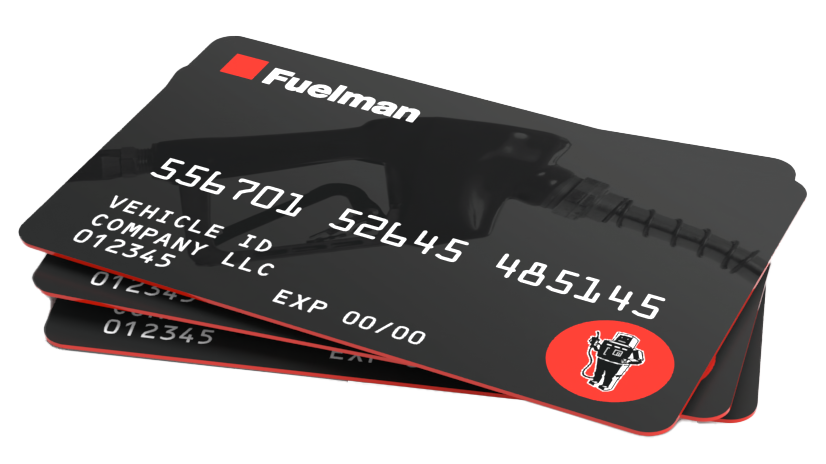Did you know that something as simple as a dirty air filter can noticeably worsen your gas mileage? With rising fuel costs, it’s more important than ever to make sure your vehicle is running in tip-top shape. Meanwhile, trucking companies can save even more money on fuel by using fuel cards for their fleet.
Learn how your air filter can affect your fuel economy, how to tell when it’s time to change your air filter and the benefits of changing your air filters regularly to maximize your vehicle’s performance.
How Do Air Filters Work?
Combustion engines rely on a consistent supply of oxygen for fuel ignition and power. Proper airflow is crucial for engine efficiency. Engines are vulnerable to air contaminants like dust, dirt, and insects.
To protect engine performance and longevity, an air filter is essential. It acts as a barrier, preventing these contaminants from entering the engine. By allowing only clean, particle-free air to pass through, the air filter facilitates necessary ventilation and ensures smooth engine operation.
How Does an Air Filter Affect Fuel Economy?
Since your vehicle’s engine needs a steady flow of clean air to operate at its best, it needs a clean air filter that blocks harmful debris from reaching the engine while still allowing full ventilation. As a result, your engine will not strain to burn the gas, necessitating less fuel.
Dirty Filters
Clogged air filters hinder airflow crucial for engine performance. Accumulated dust and particles block airflow, decreasing fuel combustion efficiency, and worsening fuel economy over time. Regular air filter maintenance is essential to prevent these issues and ensure your engine operates at its peak performance and fuel efficiency.
Clean Filters
In contrast, a clean air filter improves engine performance and fuel economy by allowing steady airflow to reach the engine. Clean air filters also are better at blocking harmful particles from entering the engine.
Due to their advanced filters, newer, late-model vehicles are less sensitive to the worsening fuel economy issue. However, a dirty air filter can still impact your fuel efficiency over time, regardless of your vehicle’s model year.
Will a Bad Air Filter Cause Bad Gas Mileage?
Inadequate air filters and bad oxygen sensors can reduce your gas mileage by up to 20%. Conversely, replacing dirty air filters and regularly checking your oxygen sensors can significantly improve fuel efficiency.
However, a dirty air filter is not the only culprit of pool fuel economy. For trucking companies looking to maximize their fleet’s fuel efficiency, fuel management systems monitor everything from fuel consumption to idling.
What are the Signs of Dirty Air Filters?
Replacing dirty air filters is essential for keeping your vehicle operating at its best. Luckily, a few signs can alert you that it’s time to change your air filter.
- The air filter visually appears dirty
- The check engine light comes on
- Engine misfires or misses when starting
- Strange engine noises
- Reduction in horsepower
- Black smoke or flames from the exhaust pipe
- Strong fuel smell
- Worsening fuel mileage
What Happens if I Don’t Change My Air Filter?
Neglecting to replace your air filter in the short term can lead to immediate performance problems, such as reduced horsepower and engine strain, affecting your overall driving experience. Reduced airflow can result in lower fuel efficiency, increased emissions, power loss, and starting difficulties, impacting your vehicle’s environmental footprint and driving comfort.
Persistent neglect can even cause your engine to stall due to insufficient oxygen intake or lead to permanent damage from particles pulled into the engine during the struggle for clean air. Regular air filter maintenance is crucial to prevent these issues and ensure the longevity of your vehicle’s engine.
5 Benefits of Changing Your Air Filters
Changing your air filters is an inexpensive and straightforward maintenance task important for every vehicle owner for its many benefits.
Increased Fuel Efficiency
Changing your air filters can increase your fuel economy. When your engine receives the oxygen it needs to combust fuel efficiently, it requires less gas to provide the same power. A clean air filter allows for the necessary level of airflow for this efficient fuel combustion.
Reduced Emissions
Replacing your air filters is better for you, your vehicle, and the environment. Clean air filters aid the emissions system in your vehicle by allowing proper airflow, while a dirty filter prevents the emissions system from working at full capacity.
Prolonging Engine Life
Keeping up on air filter replacements is an essential part of engine maintenance. Over time, your engine would need to work harder and harder to pull air through a dirty filter. This can eventually introduce the very particles it’s filtering into your engine. By taking care of your engine, you can prolong its working life.
Inexpensive and Easy
Air filter changes are one of the most straightforward car maintenance tasks but make a big difference in engine performance. It only takes ten minutes to replace most air filters, and a new air filter will run you less than one hundred dollars with installation. Whether you do it yourself or have your mechanic include it on your next tune-up, air filter changes are inexpensive and they add great value to your vehicle.
Simple To Track
Tracking when you need to change your air filters is simple. Every 12,000 to 15,000 miles, you should be changing your air filters, more often if you drive in dusty or industrial environments. Check your manufacturer’s recommendations for air filter replacements in your owner’s manual for vehicle-specific guidelines.
Improve Your Fuel Efficiency with an Air Filter Replacement
Replacing your air filter is a quick and easy solution that improves your gas mileage and your engine’s performance. So, if you feel like it’s been a while since you last replaced your air filter, give it a look or check your maintenance records.




